Can Bangladesh break free from its extractive past?
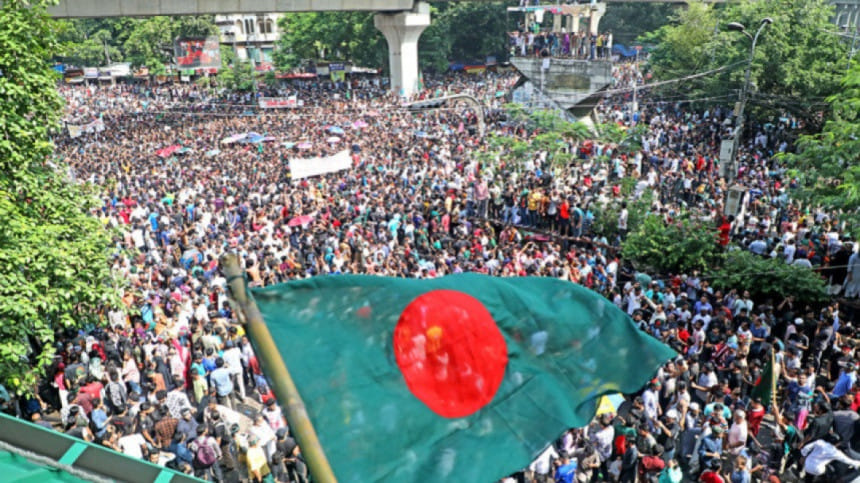
The dust from the tumultuous 2024 July-August mass uprising has barely settled, and the wound has yet to be healed, yet Bangladesh finds itself at a precarious crossroads, prompting a chilling question: will the country fail? The recent political tensions, culminating in widespread speculation about the interim government head's potential resignation due to persistent disagreements on national issues (which was later diffused), underscore a deep-seated institutional fragility. Examining this predicament through the critical political economy lens offered by Daron Acemoglu and James Robinson's seminal work, Why Nations Fail, reveals a disconcerting pattern of extractive institutions resisting a genuine democratic transition.
Acemoglu and Robinson convincingly argue that a nation's prosperity or failure is primarily determined by its institutional framework. Inclusive institutions, characterised by broad-based political participation, secure property rights and a level economic playing field, and foster innovation, investment, and widespread prosperity. Conversely, extractive institutions concentrate power and wealth in the hands of a narrow elite, leading to economic stagnation, political instability, and ultimately failure. Bangladesh's post-July '24 journey, intended to dismantle extractive practices and build inclusive ones, is facing formidable resistance from precisely those entrenched forces that benefited from the old order.
The core objective of the interim government was to lay the groundwork for a genuine democratic transition, fostering inclusive institutions and dismantling the very extractive structures that plagued the previous regimes. However, the anticipated cooperation from established political parties, economic elites and even sections of the bureaucracy has largely evaporated. Instead, there's a disheartening return to the familiar practices of capture and corruption, where self-serving interests override national progress. This directly aligns with Acemoglu and Robinson's contention that extractive elites, accustomed to privilege and control, will fiercely resist any shift towards inclusive institutions that threaten their power base.
The various reform commissions—for the constitution, electoral system, judiciary, civil service, media, local government, labour, and women's affairs, among others—have diligently submitted their proposals, aiming to usher in a new era of governance. Furthermore, the formation of a National Consensus Commission, relentlessly striving to bridge divides among political parties on key reform agendas, speaks to the recognition of this critical need. Yet, consensus remains a distant dream. This resistance to reform highlights a fundamental challenge: the unwillingness of entrenched actors to relinquish the benefits derived from the existing extractive framework, even when it means sacrificing the nation's long-term stability and prosperity.
Internal frictions within the very forces that spearheaded the uprising are what compound this institutional paralysis. The student leaders, once hailed as heroes of the July mass movement, now face accusations of corruption and a lack of transparency, eroding public trust. The growing schism between the BNP and the newly formed National Citizen Party (NCP) further fragments the political landscape, making broad-based agreement even more elusive. Simultaneously, right-wing political organisations are exerting pressure to establish a more conservative political space, directly challenging the aspirations for a free and liberal polity that underpinned the July uprising. This internal fragmentation among potential agents of change mirrors the historical patterns identified by Acemoglu and Robinson, where divisions within reform movements often allow extractive forces to regain their footing.
Adding to the disarray is the insidious influence of some expatriate YouTubers, whose often unverified content fuels a mob culture, bypassing established institutional processes for negotiating differences. This digital phenomenon, while seemingly empowering, paradoxically hinders the very consensus-building that's essential for democratic consolidation. The absence of a horizon for political elite consensus, therefore, is not merely a sign of political immaturity but a symptom of a deeper institutional malaise where dialogue is replaced by demagoguery and division.
The economic landscape, too, reflects the fragility of the political situation. Inflation, a persistent burden on ordinary citizens, continues to hover above the danger line, registered at 9.17 percent in April 2025 by the Bangladesh Bureau of Statistics. International trade faces dual threats: the looming spectre of US tariff policies and restrictive import-export regulations imposed by India. Many industries have yet to resume full production, leading to widespread layoffs, forced shutdowns, and vandalism in industrial areas, escalating labour unrest. This economic instability, often a consequence of extractive institutions failing to provide a predictable and fair economic environment, further fuels public discontent and exacerbates social tensions.
The disarray extends to educational institutions, where daily demands from various student groups, often leading to street blockades, highlight a systemic breakdown. Recent demonstrations by polytechnic students and those from Jagannath University are just two examples of how legitimate grievances are expressed through disruptive means in the absence of effective institutional channels for redress. Similarly, the bureaucracy, a crucial pillar of state function, lacks an effective command-and-control chain. The recent demonstration by NBR officials, defying legal jurisdictions, underscores the erosion of professional civil service norms, a hallmark of weak or extractive state institutions.
Amid this widespread disarray, only one institution has largely maintained its calm: the Bangladesh Armed Forces. With patient leadership from the highest ranks and active, dedicated involvement of troops on the ground, they represent a fragile hope for stability. However, even this beacon of order carries a latent risk. If troops are required to operate outside barracks for extended periods, the potential for engagement in illicit activities escalates.
Finally, while civil society is now free, the pervasive spread of misinformation and disinformation across social media platforms presents a grave danger. In an environment devoid of strong, trusted institutions, this digital chaos can further polarise society and undermine efforts towards consensus and reform.
Bangladesh simply cannot afford to fail this time. The stakes are too high, the challenges too profound. The very elites who have historically benefited from the extractive system must be compelled, perhaps by persistent public pressure and the looming threat of complete institutional collapse, to come to a genuine consensus on the fundamental reform agendas. Only after solidifying a pathway to truly inclusive institutions and governance can the nation responsibly move towards holding a national election, ensuring that the next chapter of Bangladesh's history is written not in failure, but in democratic triumph and shared prosperity.
Dr Kazi Maruful Islam is professor of governance and politics in the Department of Development Studies at the University of Dhaka. He can be reached at [email protected].
Views expressed in this article are the author's own.
Follow The Daily Star Opinion on Facebook for the latest opinions, commentaries, and analyses by experts and professionals. To contribute your article or letter to The Daily Star Opinion, see our guidelines for submission.
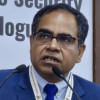
 For all latest news, follow The Daily Star's Google News channel.
For all latest news, follow The Daily Star's Google News channel. 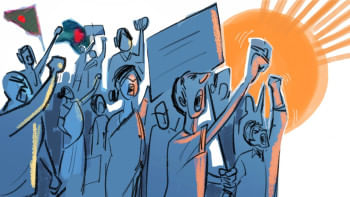
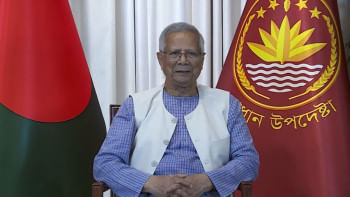



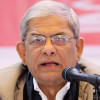
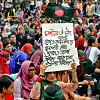

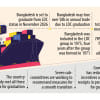


Comments